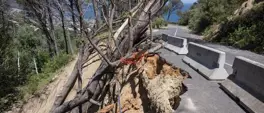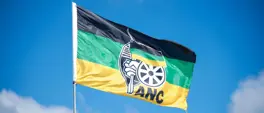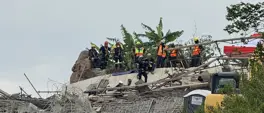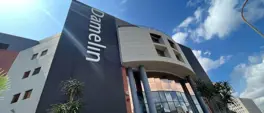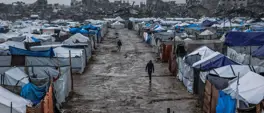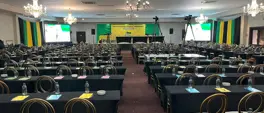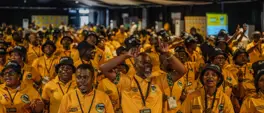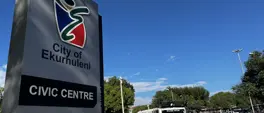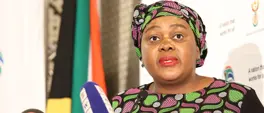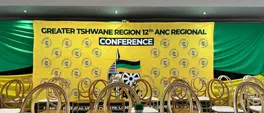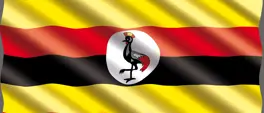Sudan capital tiptoes back to life after recapture by army
AFP
2 May 2025 | 6:09Life is slowly, cautiously returning to the Sudanese capital, weeks after the army recaptured the city from the paramilitary Rapid Support Forces (RSF) who had held it since soon after fighting erupted in April 2023.
KHARTOUM - In war-ravaged Khartoum donkey carts clatter over worn asphalt, the smell of tomatoes wafts from newly reopened stalls and pedestrians dodge burnt-out cars left by two years of war.
Life is slowly, cautiously returning to the Sudanese capital, weeks after the army recaptured the city from the paramilitary Rapid Support Forces (RSF) who had held it since soon after fighting erupted in April 2023.
Stallholder Maqbool Essa Mohamed was laying out his wares in the large market in the southern neighbourhood of Kalakla.
"People feel safe again," he told AFP. "Business is moving and there's security."
Just weeks ago this market was deserted -- shops shuttered, streets silent and snipers perched on rooftops.
In a lightning offensive in March, the army recaptured the city centre, including the presidential palace and the airport, and the RSF was shed back into the western outskirts of greater Khartoum.
But the RSF remain within artillery range of the city centre, as they demonstrated twice this week with a bombardment of the army's General Command headquarters last Saturday followed by shelling of the presidential palace on Thursday.
Since April 2023, Sudan has been torn apart by a power struggle between army chief Abdel Fattah al-Burhan and RSF commander Mohamed Hamdan Daglo.
The fighting has killed tens of thousands of people and uprooted 13 million.
In greater Khartoum alone, more than 3.5 million people have fled their homes, leaving entire neighbourhoods abandoned.
Within the next six months, the UN expects more than two million displaced people to return to the capital if security conditions allow.
'THEY LEFT NOTHING'
Kalakla, a neighbourhood on the road to Jebel Awliya -- once an RSF bastion -- suffered heavily during the war.
Its location close to a military base made it a prime target, with RSF fighters encircling the area and cutting off food and water for the civilians trapped inside.
In July 2023 activists called it "uninhabitable".
But now women can be seen on the roadside brewing tea -- a common sight before the war -- as a man dragging his suitcase stands beside a minibus, newly arrived in the war-torn neighbourhood.
Public transport has yet to return to normal as fragile security conditions and crumbling infrastructure impede movement.
With buses packed to capacity, weary commuters climb atop vehicles, preferring the risky ride over an indefinite wait for the next bus -- which may not come for hours.
From January, the army began advancing in the greater Khartoum area and by late March had wrested back control of both Khartoum and the industrial city of Khartoum North just across the Blue Nile.
Standing amid the wreckage of the presidential palace, army chief Burhan declared: "Khartoum is free."
The paramilitaries are now confined to the southern and western outskirts of Omdurman, the third of the three cities that make up greater Khartoum.
Both sides in the conflict have been accused of war crimes, including deliberately targeting civilians and indiscriminately bombing residential neighbourhoods.
The RSF in particular has been notorious for systematic sexual violence, ethnic cleansing and rampant looting.
"They left nothing," said Mohamed al-Mahdi, a longtime resident. "They destroyed the country and took our property."
Today, Mahdi steers his bicycle through the recovering market, where vehicles, animal carts and pedestrians jostle for space under the wary eye of the army.
Earlier this month, Sudan's state news agency reported that the army-backed government plans to restore the water supply to the area -- a basic necessity still out of reach for many.
But for vendor Serelkhitm Shibti, the costs of the war are not about lost income or damaged infrastructure.
"What pains me is every drop of blood that fell in this land, not the money I lost," he said.
Get the whole picture 💡
Take a look at the topic timeline for all related articles.

